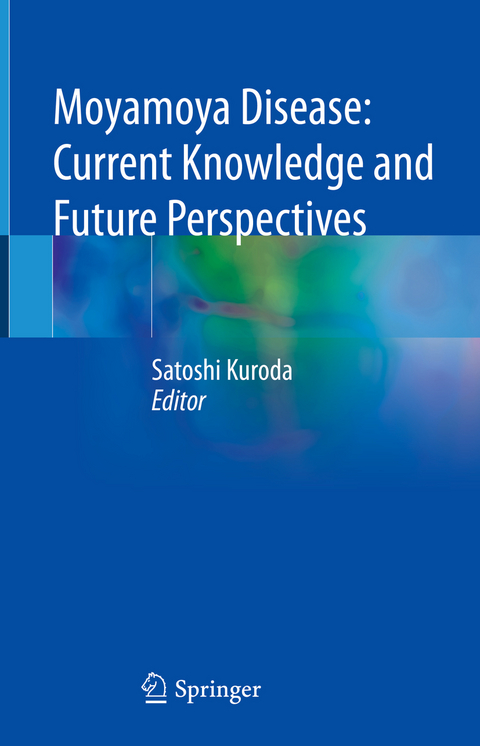
Moyamoya Disease: Current Knowledge and Future Perspectives
Springer Verlag, Singapore
978-981-336-403-5 (ISBN)
Since moyamoya disease was first reported in an English language article more than 50 years ago, our understanding of it has advanced considerably. Genetic and radiological analysis has delivered novel insights, and the latest multicenter studies are changing routine diagnosis and surgical therapy. The gene encoding the ring finger protein 213 (RNF213) has been identified as a susceptibility gene for moyamoya disease. Indications and procedures for surgical revascularization have been revised, with resultant improvements in outcomes, and studies performed over the past decade have provided new knowledge on the neuroradiological findings before and after surgery.
In describing these advances, this book will be an invaluable asset for all general physicians, pediatricians, neurologists, radiologists, and neurosurgeons who care for patients with moyamoya disease across the world.
Professor Satoshi Kuroda, MD, PhD, IFAANS Department of Neurosurgery, Graduate School of Medicine and Pharmaceutical Science, University of Toyama, Toyama, Japan skuroda@med.u-toyama.ac.jp
Part I Concept of Moyamoya Disease.- 1 History of Disease Entity & Diagnosis Criteria.- 2 Moyamoya Syndrome.- 3 Unilateral Moyamoya Disease: A Distinct Entity?.- Part II Genetic Aspect of Moyamoya Disease.- 4 RNF213 as Susceptibility Gene.- 5 RNF213 and clinical feature.- 6 RNF213 Variant as a Biomarker of Cerebrovascular Disease.- Part III Pathophysiology of Moyamoya Disease.- 7 TIA & Headache in Pediatric Moyamoya Disease.- 8 Ischemic stroke.- 9 Hemorrhagic Stroke and the Japan Adult Moyamoya Trial.- 10 Cognitive Function in Pediatric Moyamoya Disease.- 11 Cognitive Dysfunction in Adults.- 12 Asymptomatic Moyamoya Disease.- Part IV Update on Neuroradiology in Moyamoya Disease.- 13 Periventricular Anastomosis.- 14 Arterial Shrinkage.- 15 Disease progression.- 16 Postoperative hyperperfusion.- 17 Postoperative FLAIR Imaging Changes.- Part V Real World of Surgical Revascularization for Moyamoya Disease.- 18 Overview of Surgical Revascularization and Long-term Outcome in Japan.- 19 Perioperative complications.- 20 Long-term Outcome in Europe.- 21 Long Term Outcomes in USA.- 22 Long-term Outcome in China.- 23 Long-term outcome of revascularization surgery for moyamoya disease in Korea.- 24 Indirect bypass surgery for moyamoya disease.- 25 Direct/combined bypass surgery.- 26 Special Considerations—Infants.- 27 Special Considerations – Elderly.
| Erscheinungsdatum | 16.03.2021 |
|---|---|
| Zusatzinfo | 48 Illustrations, color; 30 Illustrations, black and white; XV, 341 p. 78 illus., 48 illus. in color. |
| Verlagsort | Singapore |
| Sprache | englisch |
| Maße | 155 x 235 mm |
| Themenwelt | Medizinische Fachgebiete ► Chirurgie ► Neurochirurgie |
| Medizin / Pharmazie ► Medizinische Fachgebiete ► Neurologie | |
| Medizinische Fachgebiete ► Radiologie / Bildgebende Verfahren ► Radiologie | |
| Schlagworte | Imaging • Moyamoya Disease • pathophysiology • Surgery • Susceptibility gene |
| ISBN-10 | 981-336-403-3 / 9813364033 |
| ISBN-13 | 978-981-336-403-5 / 9789813364035 |
| Zustand | Neuware |
| Informationen gemäß Produktsicherheitsverordnung (GPSR) | |
| Haben Sie eine Frage zum Produkt? |
aus dem Bereich


